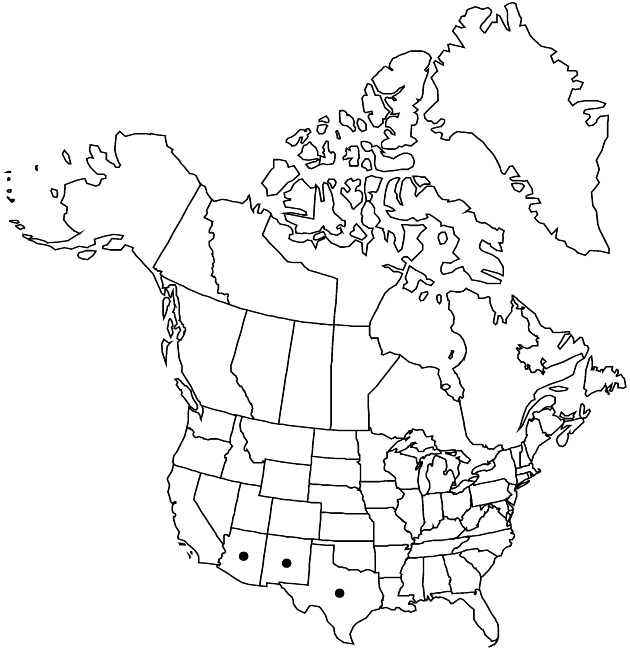Difference between revisions of "Pectis papposa var. grandis"
Brittonia 26: 32. 1974.
FNA>Volume Importer |
imported>Volume Importer |
||
| (One intermediate revision by the same user not shown) | |||
| Line 46: | Line 46: | ||
|publication year=1974 | |publication year=1974 | ||
|special status= | |special status= | ||
| − | |source xml=https:// | + | |source xml=https://bitbucket.org/aafc-mbb/fna-data-curation/src/2e0870ddd59836b60bcf96646a41e87ea5a5943a/coarse_grained_fna_xml/V19-20-21/V21_550.xml |
|tribe=Asteraceae tribe Heliantheae | |tribe=Asteraceae tribe Heliantheae | ||
|subtribe=Asteraceae (tribe Heliantheae) subtribe Pectidinae | |subtribe=Asteraceae (tribe Heliantheae) subtribe Pectidinae | ||
Latest revision as of 20:13, 5 November 2020
Plants 5–30 cm. Leaves 20–60 mm. Peduncles 10–40 mm. Phyllaries 5–8 mm. Ray corollas 5–8 mm. Disc florets 12–24(–34); corollas 3–5 mm. Cypselae 3–5.5 mm; disc pappi 2.5–4 mm. 2n = 24.
Phenology: Flowering Jun–Dec.
Habitat: Deserts, desert grasslands, dry woodlands, roadsides
Elevation: 1000–2000 m
Distribution

Ariz., N.Mex., Tex., Mexico (Chihuahua, Coahuila).
Discussion
Variety grandis is restricted for the most part to the Chihuahuan Desert with outlying populations in central Arizona. It often grows with Pectis angustifolia var. angustifolia in trans-Pecos Texas, especially on roadsides; occasional hybrids have been noted.
Selected References
None.
Lower Taxa
None.